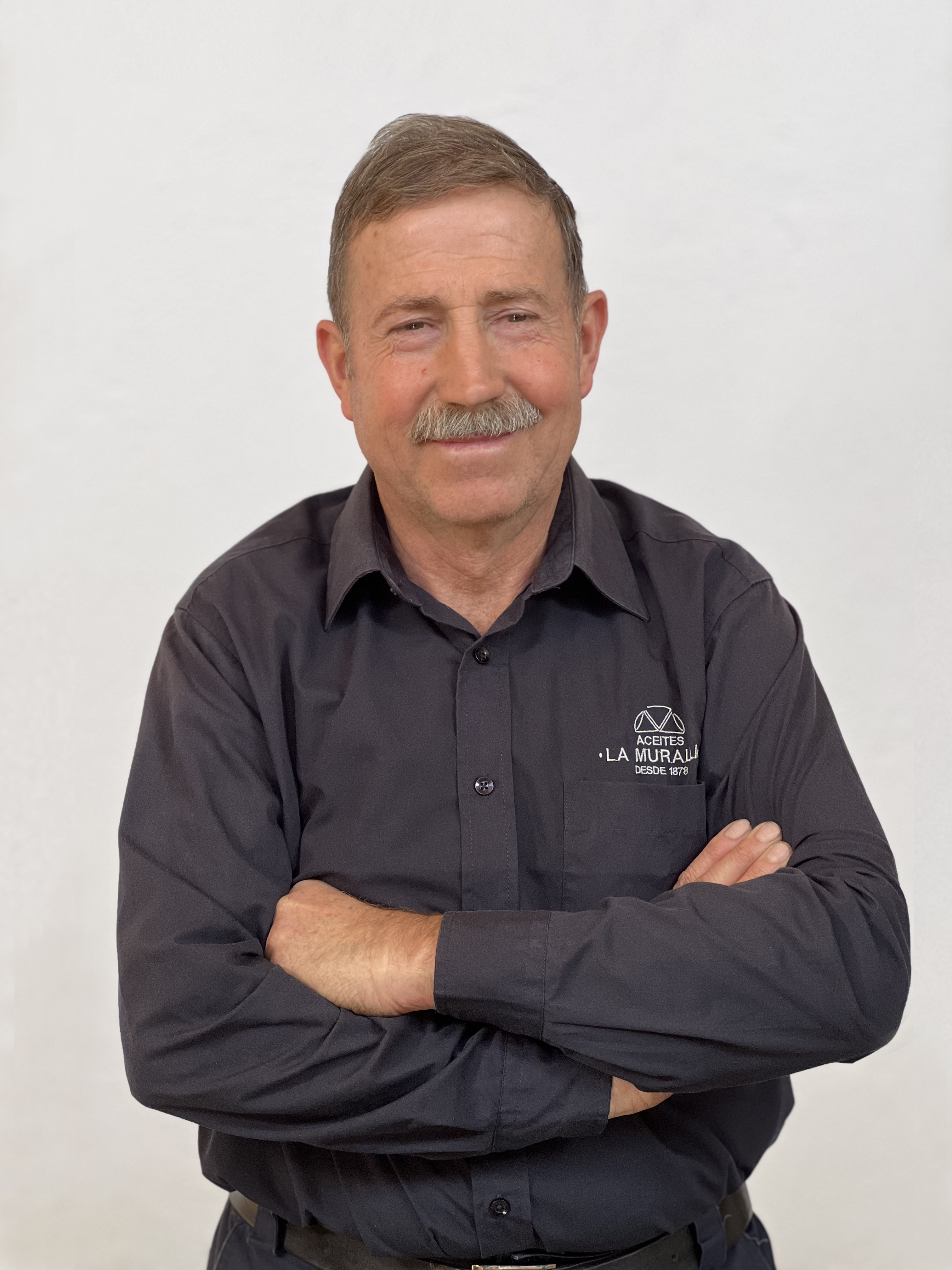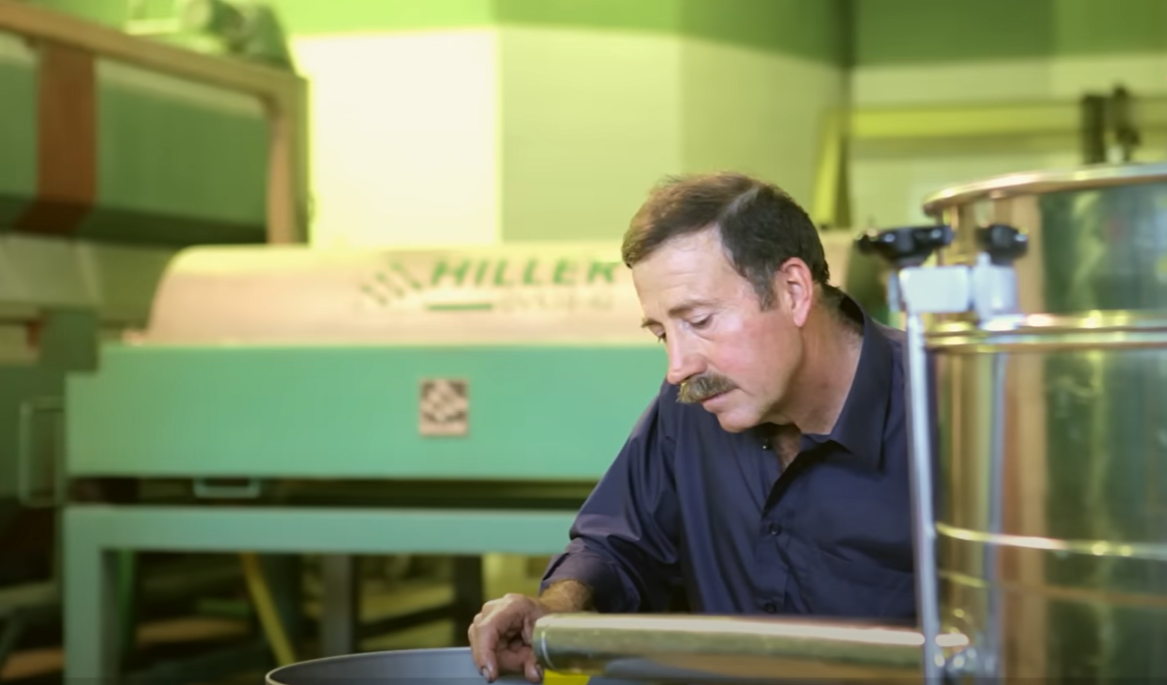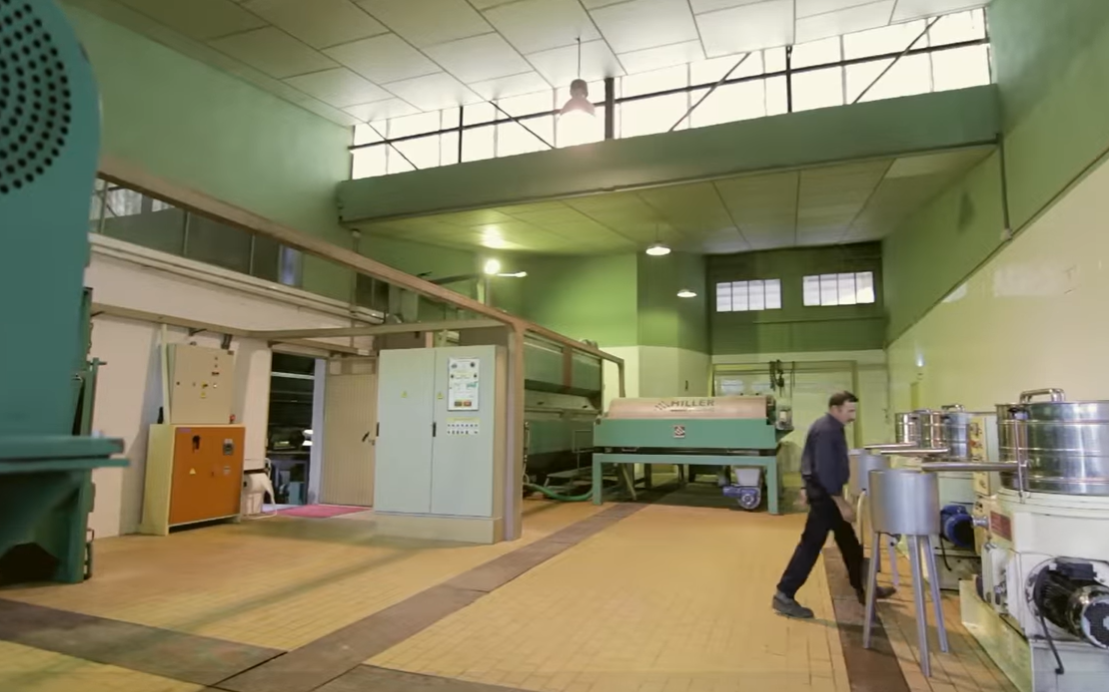
Interview with Antonio Montes, our mill master
We talk with Antonio Montes, mill master at Aceites La Muralla for more than four decades. Although the campaign is not over yet, we wanted to know his assessment of it and how the role of an oil mill master plays a fundamental role in the whole process. Especially when the trade is mastered.


1. In which parts of the process of obtaining extra virgin olive oil is the intervention of the mill master really decisive?
My maxim is "not to spoil what comes from outside". To maintain the quality of the incoming raw material, with the means we have available. At every moment, the material must be handled and it is a great responsibility to ensure that the way we act is adequate to maintain that extreme quality. There are many nuances in each process. The only thing common to all milling processes is extreme cleanliness. Throughout these years there comes a moment when you feel that the raw material "asks you" for one way of acting or another, from the moment you see it in the hoppers. It would be something like the cooks, when they say that the dish must take, from a specific ingredient, "what it admits".
Intuition plays a fundamental role, so it is difficult to express in advance which values can modify each indicator (humidity, temperature, variety of olive, quality of the fruit, state of ripeness, pulp/stone/skin ratio).
I only know that the moment has come when I know how to touch each key so that the result is what I expect, which is to obtain the highest quality EVOO possible in each batch.
2. How do you evaluate the current campaign and what differences do you find with respect to the previous campaign?
We could say that there are several aspects to comment on at this point.
Quantity
This has been a season in which even more olives were expected to be harvested. When harvesting begins, one realizes that one can begin to assess with more certainty and less conjecture. As soon as flowering begins, one can have an idea of what will happen, but without certainty.
The appearance of the olive tree in October suggested that it had a lot of fruit, from its external appearance. Until the olives were harvested, we could not see that the olive tree was much more loaded externally than internally.
This factor can cause the quantity to vary by 10%-20% with respect to the initial forecast. The same is true for the yield.
Climatic conditions
This factor is everything.
There are certain dates that are key in the harvest and if these are altered it can affect the whole campaign. For example, it must rain when it is time to apply the fertilizer because it does not integrate well without rain and farmers do not want to waste it if it is too hot when it is time to apply it.
The key moments remain intact, which is why every farmer spends his life looking at the sky. Ideally, if the olive tree has benefited from all the work done at that particular time, the season will be rewarded. If it is unusually hot on that key date, it affects the work done.
In recent years, spring heat waves, DANAS and other phenomena have become a pattern. Sometimes it seems that seasons do not even exist. To these climatic conditions we add the importance of the area where the olive tree is located, which makes it respond in one way or another to the same phenomenon. For example, if the olive tree is near a stream and it is a year of few frosts, its position will benefit it in a year of drought in the Sierras Subbeticas. This same drought could dry and damage more the same olive tree in another area. All these factors must be taken into account. This same drought could dry and damage more the same olive tree in another area.
All these factors must be taken into account.
Yield assessment
Focusing on the initial question, this season can be described as "good", because it compares to the 2022-23 crop, which was "very bad".
There are many factors, not only the drought. It is difficult to know why. A comparison is made and conclusions are drawn based on yield but not on the causes. There have been two dry harvests, however, this one has been better than the previous one. There are those who talk about the famous "vecería". "Since last year was bad, this year should be better". There is a trick to this. The olive tree's "vecería" works depending on the variety, and we are able to alter that alternation thanks to earlier harvesting. In the olive tree, it is not the same to remove the fruit earlier. In April and May the olive tree is already creating the next harvest, so if we take the olive earlier we can modify that 100% one year and 0% the following year of harvesting that would be estimated, and change it to 60% and 40%. This nuance is not something "new", but has always been present and we already know how to "circumvent" it so as not to remain at 0 in the harvest. That is why it is normal and more measurable the adversity presented by the weather conditions.

3. According to your experience, how much longer do you think this drought situation in the Sierras Subbéticas can be prolonged, obtaining a good extra virgin olive oil?
A prolonged drought is not synonymous with a worse crop because, as we mentioned, there are other factors that have an impact. A balanced year will always be better, obviously, but against all odds the 2024-25 crop could yield better oil with a longer drought.
The treatments will be fundamental, the number of heat waves, the unexpected temperatures at key moments, pests, number of frosts... If at the beginning of a campaign, which is when more quality is obtained, there are better climatic conditions than in the current campaign, it will be a better harvest, even if the rest of the year is drier. For example, the "snow-wind" combination is the worst for freezing the olives and spoiling them. If this is prolonged, the fruit ends up decomposing and the quality of the oil could be only lampante. When the percentage of frosted olives is very small in each tree, it does not influence the result because it is practically imperceptible. But if this happens in a very dry year, at the key point of highest quality of extra virgin olive oil, it can be even worse than the absence of water itself.
4. How does a technical contingency, such as a machine breakdown, affect a campaign?
It depends on the magnitude. An unforeseen event always involves a break in a link of the work chain.
At the mill, the objective is to deal with these situations in record time so that the key points are resolved quickly and the chain is not interrupted. Before the campaign, all machinery is checked and repaired to avoid these unforeseen events. Those that arise in the middle of the harvest are not usually very damaging, but the most common is the breakage of parts that are easily replaceable in the next cleaning (between milling and milling).
The worst thing that can happen is that a specific damage causes the olive to remain crushed or beaten longer than it should. Then there would be a significant loss of quality. We have not witnessed anything like this for years and I believe that the key is to anticipate possible unforeseen events by carrying out preventive maintenance before the campaign and always having spare parts in stock for the most important parts.
5. Is there any way to counteract the effects of a bad harvest from the mill itself, or does it all depend on the incoming raw material?
The raw material is what rules. As I said before, the objective of my work is not to spoil what comes from outside. If you can't spoil it, you can't do miracles either. That's why the focus is always on the field. Our farm management team has worked hard to maximize the campaign, applying all the necessary procedures. This should be rewarded, but weather conditions do not favor or "show off" this work in many cases.

6. At what point in your professional career did you first feel you had total control over the oil in a milling operation? When did you feel you really mastered the craft?
The reality is that "you learn every day". Many years in the profession make you anticipate unforeseen events. It can be said that the first time I saw that I could take a few minutes off from milling, even if I wasn't going to do it (laughs), is when I felt I had mastered the profession of mill master. The reality is that we all make mistakes because we are human. But experience makes even a management failure go unnoticed because you have been able to foresee everything else. It is mere intuition, as we were talking about before. A person who has internalized the driving of a car is going to expose his reflexes in a very clear and evident way and not any "swerve" is going to end in a "total loss".

